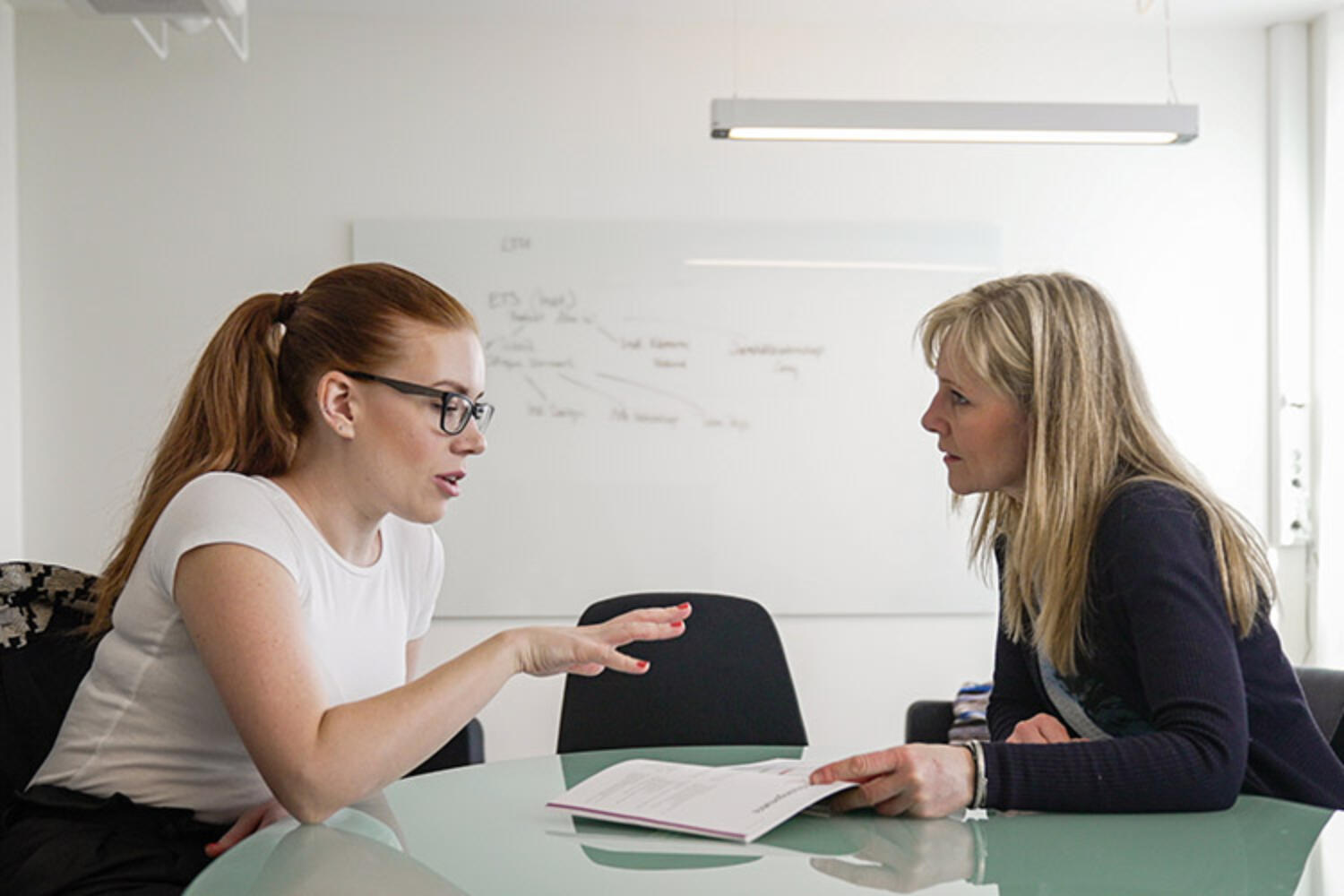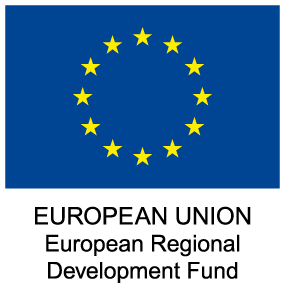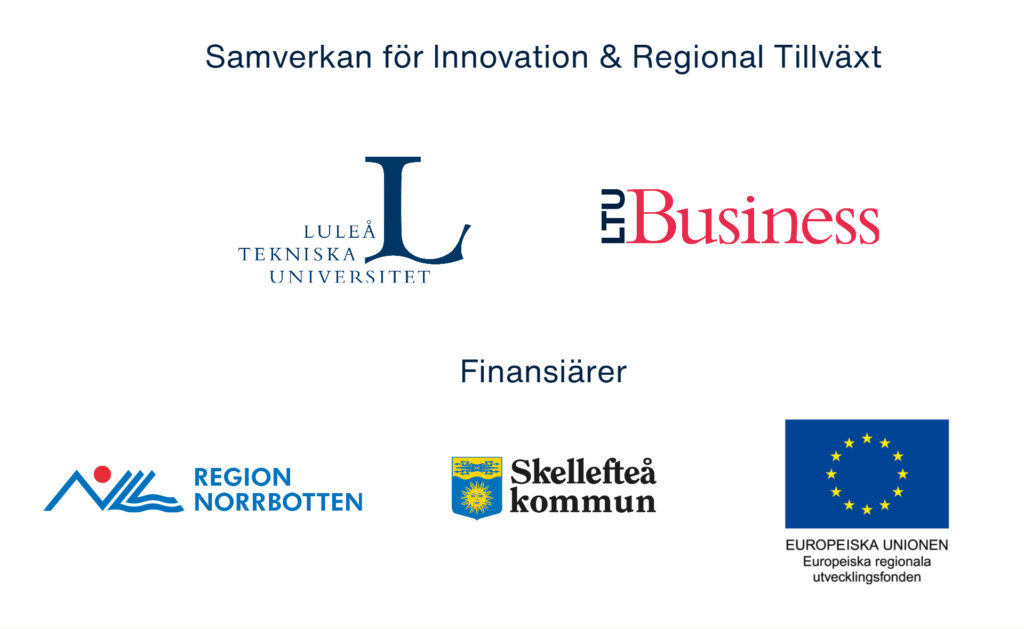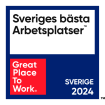

Mirror makes new business with the help of the students
 The Norrbotten-based IT company Mirror saw an opportunity to invest in further development of their business system to be able to sell it to a new market, but they needed help to understand the new customer group’s needs and to validate the business potential. A student team at Luleå University of Technology took on the challenge.
The Norrbotten-based IT company Mirror saw an opportunity to invest in further development of their business system to be able to sell it to a new market, but they needed help to understand the new customer group’s needs and to validate the business potential. A student team at Luleå University of Technology took on the challenge.
– The collaboration has given us a proper market analysis, says Terese Johansson, business area manager at Mirror.
Mirror, which has offices in Luleå and Kalix, has successfully developed and sold the cloud-based business system mBiz, primarily to customers in the security industry. The system is used to efficiently handle work orders for, for example, installations and service work.
Through a contact, Mirror received signals that another industry, to which its products have not been sold so far, has a similar service business and thus also similar needs: namely the refrigeration and freezing industry. Potentially a completely new customer segment – which could mean new business. Terese at Mirror:
– We saw potential in the new market but the questions were many. What does it look like in the refrigeration and freezing industry; what are their needs? How do they work today? How would they like to work in the future? How well does mBiz meet their needs? How extensive adjustments to the system do we need to make and will the investment pay off?
Fast Track opened their eyes to student collaboration

Business development manager Craig Philips
Mirror participates in the Fast Track business development program, the purpose of which is to strengthen companies in Norrbotten and Västerbotten through business development support from LTU Business and collaboration with Luleå University of Technology. Business developer and coach Craig Phillips was the one who guided Mirror in contact with the university to get support to investigate and validate the business potential in the new segment.
– We coach companies to the right subjects and students or researchers at the university and help them describe their needs in a “pitch” that the university can respond to with the right resources. The result of collaborations between the university and companies is a win-win. Companies often lack the time and resources to carry out a project themselves, while it gives students a real case to work with in their education, says Craig.
– At the same time, we saw a chance to get closer to the competence that exists at the university, says Terese at Mirror.
We have gone from not having any active contacts with the university to seeing it as a natural and powerful partner and that we can benefit greatly from each other. – Terese Johansson, business area manager at Mirror
Mirror was matched with a student team of would-be civil engineers running the Industrial Economics program.
– These students are future business developers and change leaders and can solidly probe a market to produce the right insights, says Craig.
Luleå University of Technology has always had a close connection to businesses and industries. Anna Öhrwall Rönnbäck is a professor and leads Fast Track:
– The fact that our students do work that benefits companies is completely natural for us. With Fast Track, the university wants to open up even more and establish more direct contacts with companies. It should be as easy as picking up the phone or sending an email to us to start a new collaboration, says Anna.
Critical insights from twelve weeks of research and analysis
In the survey, the students focused on two areas: on the one hand the needs of the industry companies and on the other hand the economic feasibility of how the business system would need to be developed with new functions to meet the needs.
The students interviewed representatives of a large number of companies in the refrigeration and freezing industry to gain a deep understanding of what needs exist, and then checked how common the different needs are through a quantitative survey.
In the spring of 2020, after twelve weeks of work, the students presented their results to Mirror.
A safe investment with positive side effects
– We are very pleased with the result, says Terese. We have received a proper analysis of what the companies want, both in functions and in soft values. We understand what problems they experience in their current systems, with their suppliers and in their processes. The insights have given us security and we have plans to further develop mBiz to be able to sell the product to the new segment.
Mirror has already applied for a new collaborative project with Luleå University of Technology to investigate another potential customer segment.
– We have gone from not having any active contacts with the university to seeing it as a natural and powerful partner and that we can benefit greatly from each other. This has also been a good opportunity for us to get to know students who will soon be graduating, and for them to get in touch with a company that they may find fun to work at in the future. And they get a reference in their job search, Terese concludes.
FACTS
Fast Track is part of the project Collaboration for innovation and regional growth (SIRT) which is run by Luleå University of Technology with LTU Business as a partner and funded by the EU / ERUF through the Swedish Agency for Economic and Regional Growth, Norrbotten Region, Skellefteå Municipality and Luleå University of Technology.
→ Learn more about university collaborations

 Their game will be released in Japan
Their game will be released in Japan















